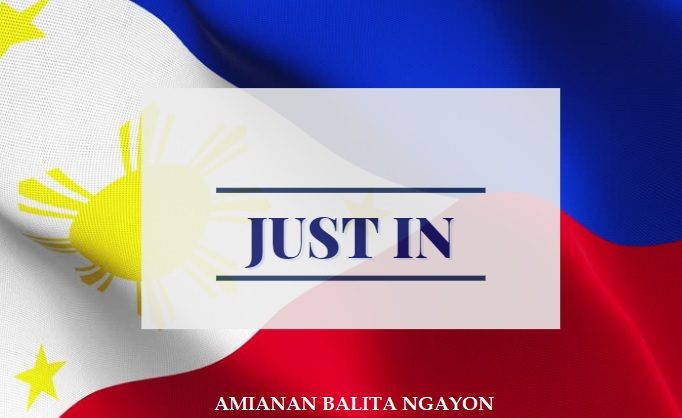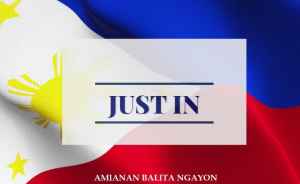Palace Maintains Phl Fared Well On Press Freedom Amid Global Slide

BAGUIO CITY (April 22, 2021) – Malacanang maintains the country fared well on the World Press Freedom Index (WPFI) this year amid the global slide as noted by the Belgium-based press freedom watchdog Reporters Sans Frontieres (Reporters Without Borders) or RSF on Wednesday.
Despite notable declines in 73% of all countries in the world, the Philippines still fared well, said Presidential Task Force on Media Security (PTFoMS) Executive Director, Undersecretary Joel Sy Egco, adding, “an indication that compared to previous administrations, press freedom under President Rodrigo Roa Duterte remains freer and better.”
While noting a slight 2-point drop in the WPFI, the country’s rankings in the Index for the past five years remained generally better than during the term of former President Noynoy Aquino in spite of the onslaught of the Covid-19 pandemic, Egco explained.
RSF’s index showed that President Duterte has an average of 133.6 points counted from 2017 to 2021 with a high of 138, compared that during the presidency of Aquino which averaged 142.5 points during his entire term, reckoned from 2011 to 2016, with a high of 149.
“So far, President Duterte’s lowest grade is Aquino’s highest. It is high time to set the record straight, there is no shrinking space for media in the Philippines based on this year’s World Press Freedom Index of the RSF”, Usec Egco said.
Citing the pandemic as the main reason, RSF said that press freedom was “totally blocked or seriously impeded in 73 countries and constrained in 59 others”, most notably in Malaysia where an anti-fake news law and arrests of journalists led to a massive 18-point decline.
According to RSF, this year’s “index data reflect a dramatic deterioration in people’s access to information and an increase in obstacles to news coverage” pointing out that the “coronavirus pandemic has been used as grounds to block journalists’ access to information sources and reporting in the field.”
However, despite a global decline in press freedom due to the pandemic, RSF’s WPFI showed that there was only a two-point drop in the Philippines ranking during President Duterte’s fifth year in office, argued Egco, while adding that “compared that to the seven-point drop during Aquino’s third year as president, or the precipitous 34-point drop in the index during President Gloria Arroyo’s last year in office in 2009 when the Ampatuan Massacred transpired.”
PTFoMS believes that RSF’s index proves beyond doubt the media environment in the country “has generally improved since 2009, especially after President Duterte came to office.”
The 2021 WPFI also shows that despite the pandemic, the Philippine press is freer than in most countries in Asia, such as Singapore (160) or China (177), Egco beamed, as he explained that “with a dedicated mandate to resolve media killings in the country, the PTFoMS oversaw the 50th case of media killing that resulted in a guilty verdict, bringing to 67 the total number of media killers that were convicted by the courts as of 2021.”
In 2018, RSF removed the Philippines in its list of most dangerous countries in the world for journalists.
In 2019, through the political will of the Duterte administration, the nation became a beacon of hope for press freedom when Judge Jocelyn Solis Reyes convicted Datu Andal Ampatuan Jr and Zaldy Ampatuan, the masterminds of the Ampatuan Massacre, of 57 counts of murder along with 28 other co-accused, while more than a dozen others were sentenced to 6–10 years for being accessories.
Again, the Philippines was declared as the “biggest mover” in the Committee to Protect Journalists’ (CPJ) Global Impunity Index released last year.
The CPJ said, the Philippines is the most improved country in last year’s rankings, improving from the fifth worldwide to seventh. While the country is also not included in CPJ’s list of “World’s Worst Places to Be a Journalist” or “10 Most Censored Countries”.
In the 2020 Director-General Report on the Safety of Journalists and the Danger of Impunity released by the United Nations Educational, Scientific and Cultural Organization (UNESCO), it cited the “significant progress” made in the Philippines citing the Ampatuan Massacre case in view of the 2019 conviction of the masterminds.
The UNESCO report highlighted that Philippines was among a few countries that has set up or strengthened monitoring mechanisms to track attacks against journalists which has contributed to better reporting on the safety of journalists.
UNESCO also emphasized that the Philippines has put up measures in place to prevent crimes against journalists and media workers and established specific bodies dedicated to ensuring the prosecution of crimes against journalists.
According to Egco, the Philippines is believed to be the first and only country in the world to establish a government body devoted exclusively to media security – the PTFoMS established on October 11, 2016 by President Duterte by virtue of Administrative Order No. 1 that instituted an inter-agency task force with the goal of protecting the life, liberty and security of media workers.
Artemio A. Dumlao
JUST IN
412 YEAR-OLD CATHEDRAL, TINUPOK NG APOY
April 23, 2024
HEALING THROUGH ART: AN EXHIBIT FOR MENTAL HEALTH
April 20, 2024
OPPORTUNITIES AND RISKS IN THE ERA OF AI
March 27, 2024
NONGSHIM
February 26, 2024





